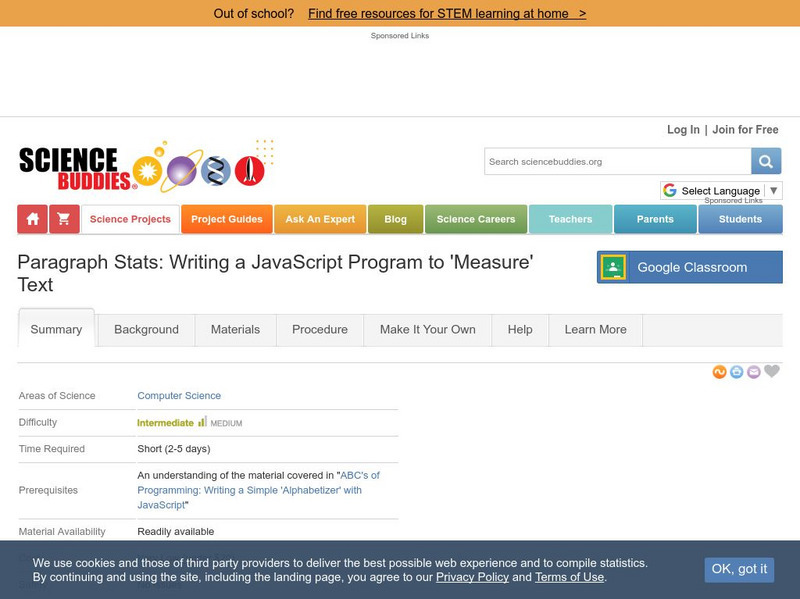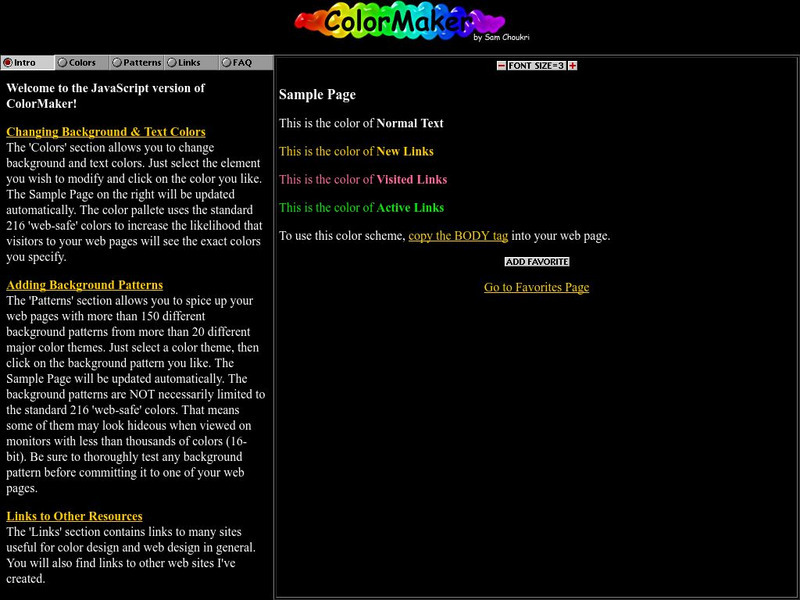Code.org
Introduction to Conditional Logic
On one condition ... explore how to use conditionals within conditionals. Scholars apply conditional statements to improve upon the app they built during a previous lesson. They also learn about nested conditionals in the 11th lesson of...
Code.org
Understanding Program Flow and Logic
Explore decision-making logic in programming computer games. The 10th installment of a 21-part unit teaches scholars how to apply conditional statements and Boolean expressions. They use these concepts to create a "Guess My Number" game...
Code.org
Introduction to Digital Assistant Project
How does a computer recognize voice commands? Scholars learn about digital assistants and natural language processing (NLP) algorithms in the ninth lesson of the series. They begin building a simple digital assistant and work on this...
Code.org
User Input and Strings
Pupils learn to apply strings in computer science. They master two new user interface elements and also use string type data to represent ASCII characters. Finally, individuals create an app for Mad Libs in the eighth lesson of the series.
Code.org
Using Variables in Apps
Investigate the benefits of using global variables. The seventh installment of a 21-part unit continues the study of variables from the previous lesson. Young computer scientists modify two existing apps by adding variables and learn how...
Code.org
Controlling Memory with Variables
Not all variables are created equal. Discover how variables in computer science are different from variables in math class. Scholars learn to work with variables in computer programming by developing a mental model for how variables...
Code.org
Multi-screen Apps
Scholars continue their study of event-driven programming by creating a multi-screen app in the fifth instructional activity of the series. They incorporate previously learned elements and events in the mini-project.
Code.org
Introducing Design Mode
Move beyond buttons when designing user interfaces. In the fourth installment of a 21-part unit, young computer scientists learn to apply design mode, which gives users options for colors, fonts, etc. They learn to incorporate these...
Science Buddies
Science Buddies: Writing a Simple Calculator Program With Java Script
This is a good first-time programming project. You'll learn how to use JavaScript to create a basic calculator program that you can run in your Web browser.
Science Buddies
Science Buddies: Paragraph Stats: Writing a Java Script Program to 'Measure' Text
This is a challenging first-time programming project. You'll learn how to use JavaScript to create a simple program to analyze one or more paragraphs of text. Your program will count sentences, words and letters, and report the resulting...
Other
Hot Scripts: Java Script
This resource presents an internet directory of resources for JavaScript programmers.
Other
Color Maker
This very useful site allows you to change the color and background patterns of a web page, and then copy the HTML code to your own site. Includes a tutorial, links to other web pages about color design, and links to a TableMaker and a...
Khan Academy
Khan Academy: What to Learn Next After Java Script and Processing Js
A review of programming with JavaScript and ProcessingJS, and guidance of what to learn next.














